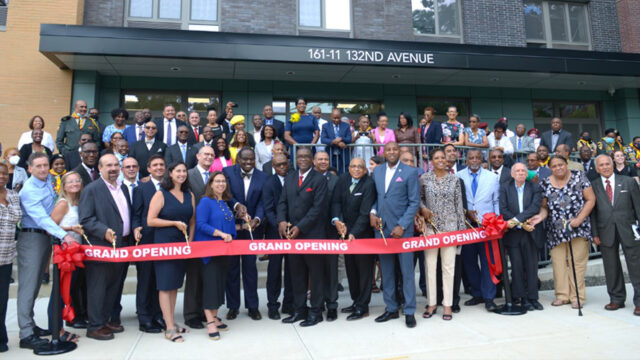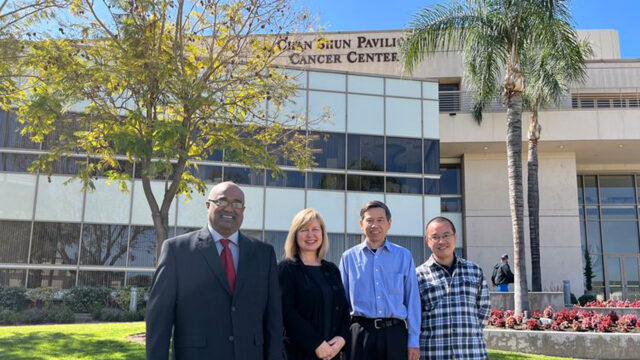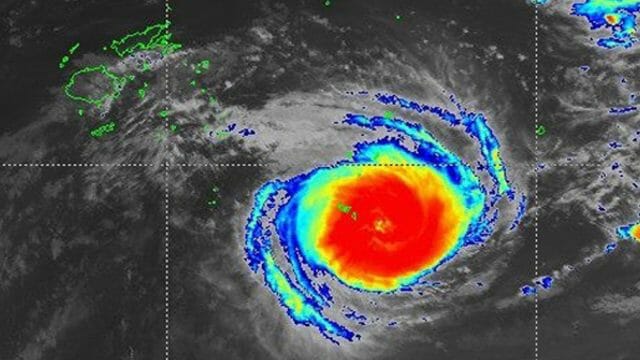Do we live for now or for the future? That’s the question.

I’m now at the stage of life when my thoughts occasionally turn to retirement. When they do, there’s usually a swirl of questions: Where will my wife and I live? Will we have enough to take care of ourselves financially and help our grandchildren? What will I do in retirement?
It seems reasonable to ask such questions. But if I dwell on them long enough, the likely result is a sense of anxiety, which robs me of the joy of life now.
We can also dwell so much on the mistakes and lost opportunities of the past that the present loses its energy, its promise, and its blessings. I’ve made my fair share of mistakes in both my personal and vocational life. Simple decisions I could have made would have provided greater financial security for my family; and I often cringe when I recall some of the decisions I made, or did not make, as a pastor or church administrator.
Some live in constant fear of what might happen in the future, which often never does. Whether it’s the weight of the past or the foreboding associated with the future, both scenarios rob us of the joy of the present and the exhilaration of living in the moment.
Feast Now, or Later?
“Living in the moment” is often confused with “living for the moment.” The difference between the two is stark. Living for the moment is spending our vital resources—health, energy, time, money, etc.—as if there were no tomorrow. Those who live for the moment may spend all their income on vacations, expensive houses, cars, high-end restaurants, and other items that bring immediate gratification. Instead of putting aside some funds for “rainy days,” everything is spent on the present, with little or no concern for the future.
Then there are those whose lifestyle, as it relates to their diet, habits, and ethics, places great strain on their health in their effort to live for the moment, but who do not necessarily think of the ramifications for their mental, emotional, and physical well-being later on.
The actions of those who live for the moment remind me of this statement made by Bishop Fulton Sheen: “Actually, there are only two philosophies of life: one is first the feast, then the headache; the other is first the fast and then the feast.”1 Those who live for the moment spend their resources to have a feast now. They are usually inclined to acquiring things and experiences on credit. Their cars are flashy and their homes have great curb appeal and are fitted with all the mod-cons. But sooner or later, they’re left with the headache of paying for the feast they so unwisely had.
Those who fast before the feast are those who live within their means, practicing self-discipline and self-denial, and finally are able to have a wonderful and prolonged feast without the headache. “Live for the moment” sounds like a helpful mantra, but its practical expressions are fraught with grave danger.
When we live in the moment, each minute, each hour, and each day is seen as a special gift from God.
When we live in the moment, each minute, each hour, and each day is seen as a special gift from God that is to be used to build relationships, pursue our interests, find fulfilment in our work, serve our fellow humans, and honor our heavenly Father. The past is remembered not so much for its failures and missed opportunities but for the lessons learned. The future is anticipated in hope of the fulfilment of God’s promises.
Life at its best unfolds only in the present. Jay Dixit in The Art of Now wrote: “We let the present slip away, allowing time to rush past unobserved and unseized, and squandering the precious seconds of our lives as we worry about the future and ruminate about what’s past.”2
The phrase “living in the moment” was unknown in Jesus’ day, but the concept was at the center of much of His teaching. An example is, “Take therefore no thought for the morrow: for the morrow shall take thought for the things of itself. Sufficient unto the day is the evil thereof” (Matt. 6:34, KJV).
Sarah Young paraphrases this verse in the October 10 devotional in her book Jesus Calling. Assuming the voice and the heart of God, she says, “Live fully in the present, depending on Me each moment. Rather than fearing your inadequacy, rejoice in my abundant supply.”3
“Living in the moment involves a profound paradox: You can’t pursue it for its benefits. That’s because the expectation of reward launches a future-oriented mindset, which subverts the entire process. Instead, you just have to trust that the rewards will come.”4
We can live in the present, not because of our adequacy or our boundless resources but because we trust the One who has invited us to place our lives in His hand and allow Him to do the rest. I must confess that it’s a bit frightening at first to just place oneself in God’s hand completely and let Him do the heavy lifting and worrying, but the benefits are numerous.
Our Moment
How do we live in the moment during the COVID-19 lockdown?
Well, instead of spending time eagerly looking forward to the end of the lockdown and the benefits to be gained when that happens, why not concentrate on the benefits to be gained now and embrace each opportunity that the lockdown presents. I find that there’s more time for reflection, relationship building, reading, writing, walking, and doing things around the house that needed to be done for a while.
Some of today’s greatest literature was written during confinement. Think of John Bunyan’s Pilgrim’s Progress, written during incarceration in Bedford Jail.
Martin Luther King, Jr., wrote a number of impactful letters from his Birmingham jail cell, in which he defended peaceful protest against racism and discrimination. In one of those letters, he wrote the famous line, “Injustice anywhere is a threat to justice everywhere.” So, even confinement can prove a blessing when we live in the moment.
Let’s drink from the springs of opportunity that are afforded by the pandemic lockdown. Life is fuller, more satisfying, or at least more tolerable, when we embrace our present circumstances and seek God’s blessing in making the best of them.
Paul worked this out in his own life and was able to declare, “I have learned to be content whatever the circumstances” (Phil. 4:11, NIV).5 In other words, I have learned to live in the moment.
1 Fulton J. Sheen, The Life of Christ, New Edition (New York: Doubleday, 2008) p. 14.
2 James Dixit, “The Art of Now: Six Steps to Living in the Moment,” Psychology Today, Nov. 2008, accessed May 15, 2020.
3 Sarah Young, Jesus Calling (Nashville: Thomas Nelson, 2004) p. 297.
4 James Dixit, “The Art of Now.”
5 Texts credited to NIV are from the Holy Bible, New International Version. Copyright ã 1973, 1978, 1984, 2011 by Biblica, Inc. Used by permission. All rights reserved worldwide.








